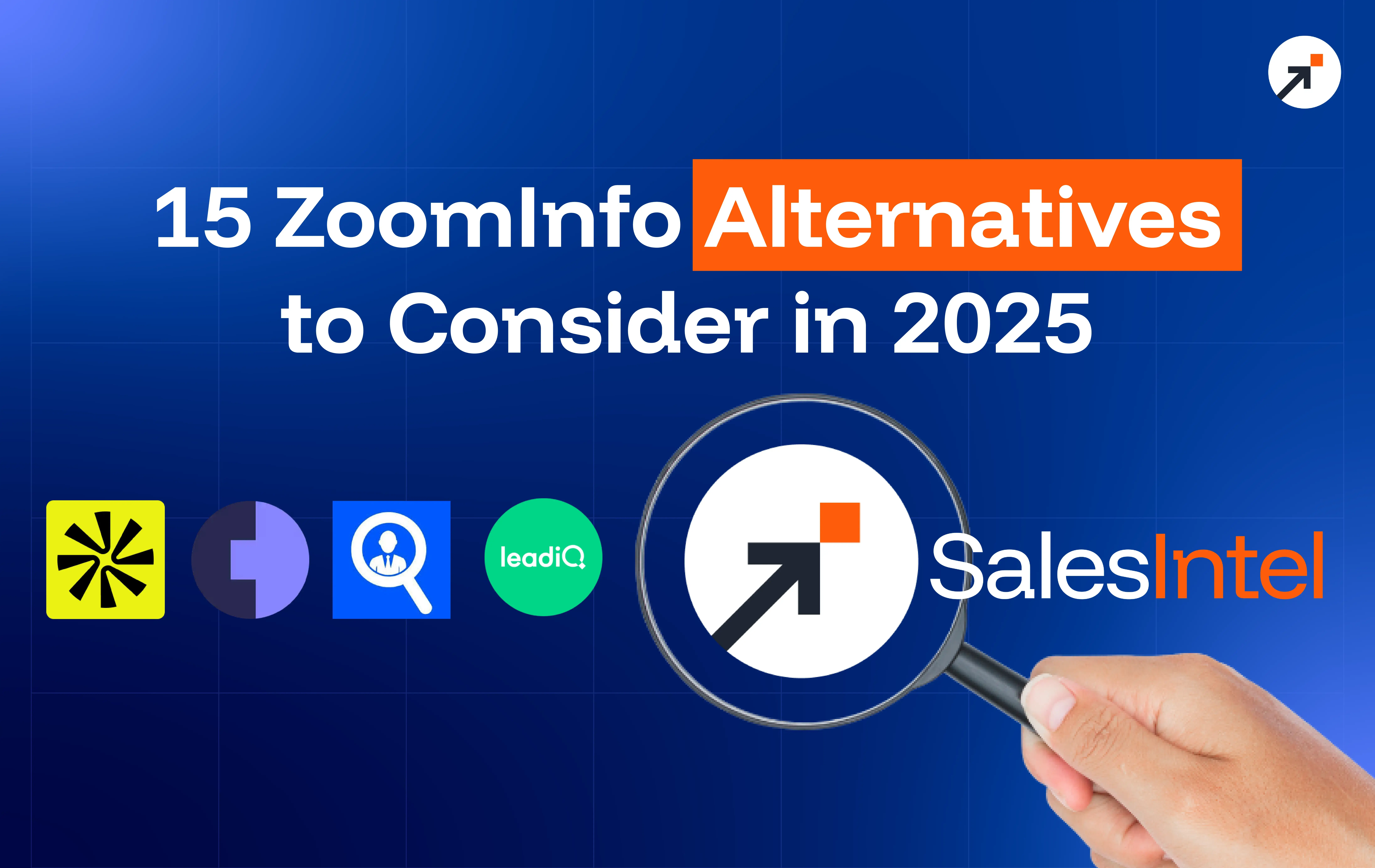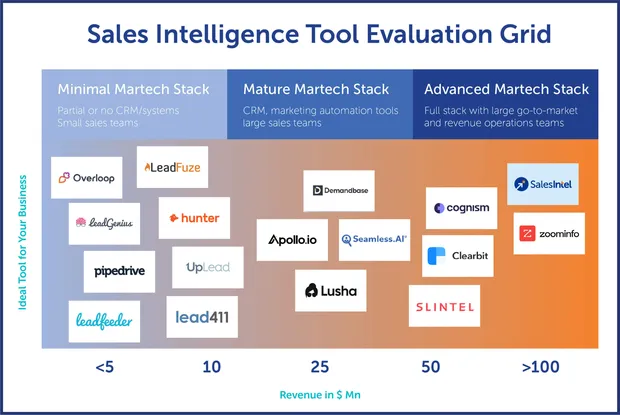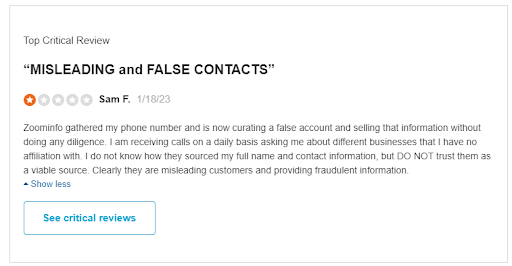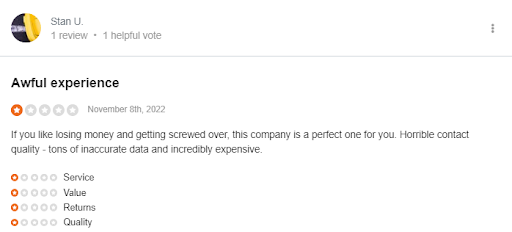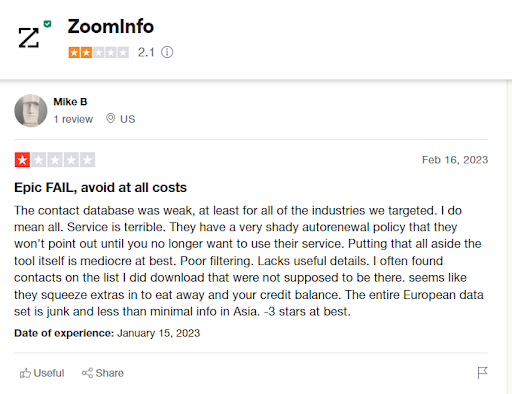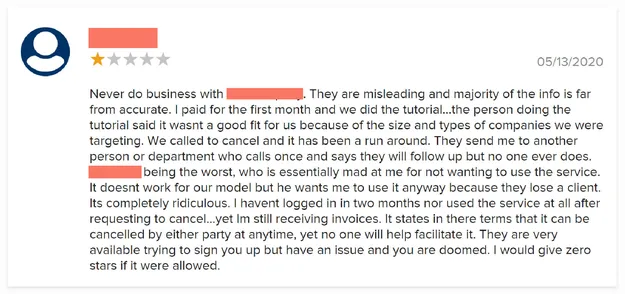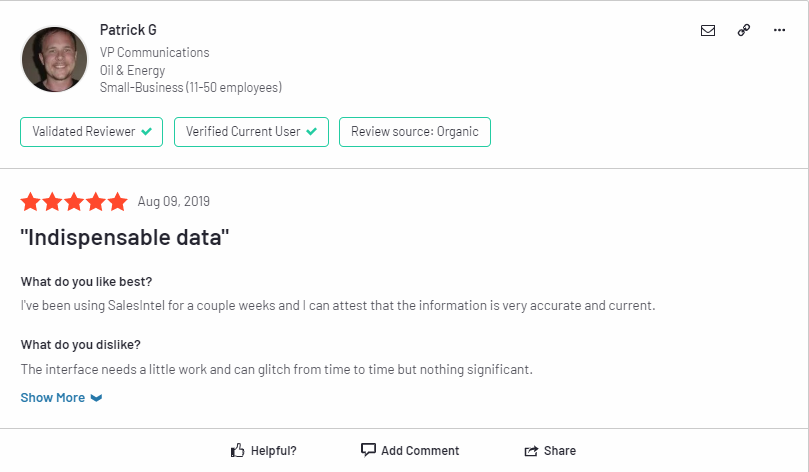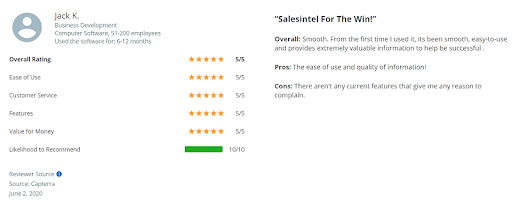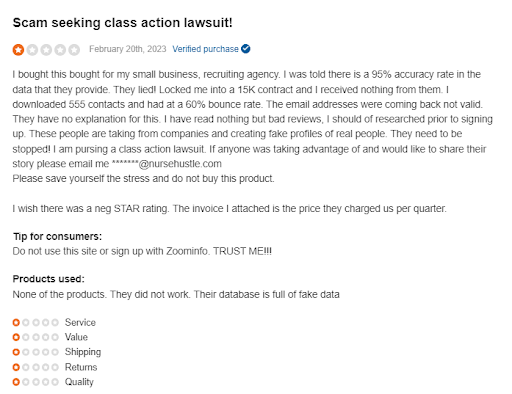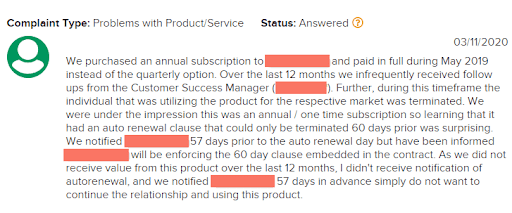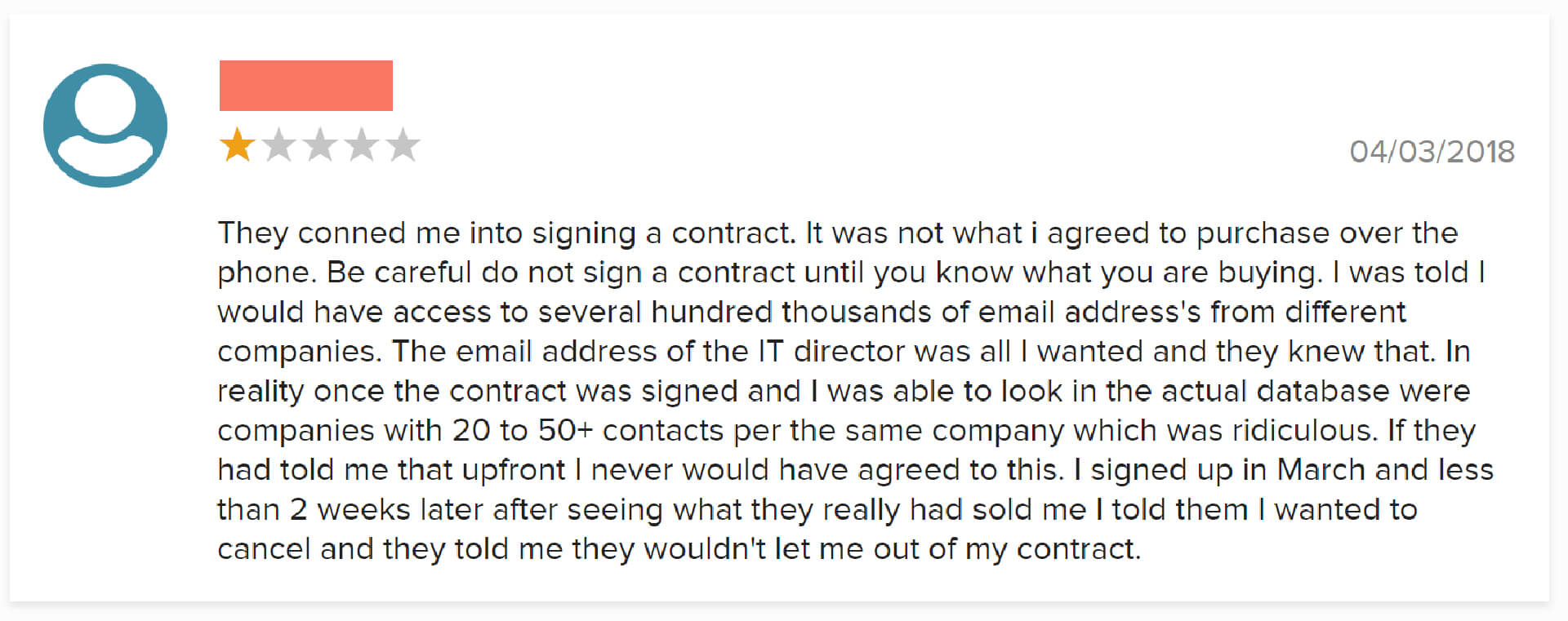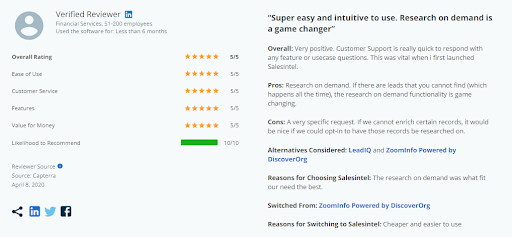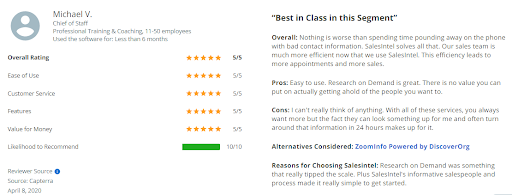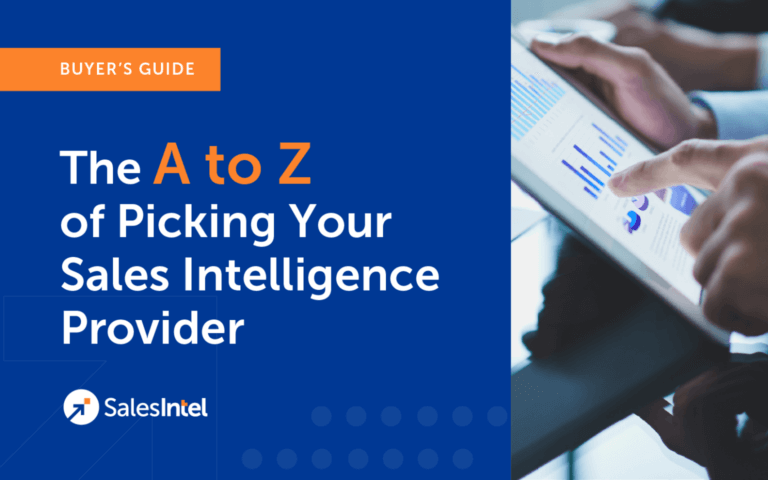A quick AI-generated overview extracted directly from the content of this page.
When it comes to B2B data, ZoomInfo is undeniably the elephant in the room. They helped define the category of sales intelligence. However, as we move through 2026, revenue teams are asking a critical question: Are we renewing ZoomInfo because it drives the most efficient pipeline, or simply because it’s the name we know?
If you are reading this, you likely stand at a pivotal moment in your growth journey. You understand the necessity of premium sales intelligence technographics, intent signals, and human-verified contacts but you may be finding that the “enterprise-standard” price tag and rigid contract structures no longer align with your ROI goals.
Defining a “True” ZoomInfo Alternative
Before jumping into the comparison, it is vital to distinguish between a tool and a platform. The market is flooded with simple email finder plugins and scraping tools that claim to be alternatives.
Let’s be clear: A cheap plugin is not a ZoomInfo alternative.
If you are looking to replace ZoomInfo, you aren’t just looking for phone numbers. You need a comprehensive engine that fuels your Go-to-Market strategy with:
- Deep Firmographics & Technographics: To segment your ideal market.
- Buying Intent Signals: To catch buyers before they reach out.
- Data Enrichment: To keep your CRM and automation clean.
- Human-Verification: To ensure your SDRs aren’t dialing dead ends.
Below, we have curated the definitive list of sales intelligence platforms that actually rival (and in specific areas, outperform) ZoomInfo in data depth, accuracy, and price-to-performance ratio.
Sales Intelligence Tool Evaluation Grid
The Mid-market Context
While there are numerous sales intelligence solutions providers in the market, it’s important to evaluate the right sales intelligence tool for you depending on your unique business needs. If you are looking for a ZoomInfo alternatives, it’s important to narrow your search to platforms that truly offer sales intelligence data (contact and company), insights (intent data, technographics, firmographics and other data types), solutions (data enrichment, on-demand data research) and so on. While you’ll find many resources on the internet that list various B2B sales intelligence companies that list solutions from small to enterprise level on the same list, it’s important to understand that not all sales intelligence tools offer the same depth of data and insights. A sales intelligence tool that primarily offers email lists and contact data is not truly a ZoomInfo alternative. ZoomInfo offers more than just contact data lists, and so if you are searching for a ZoomInfo alternative, you are essentially looking for a solution beyond an email finder tools – you are looking for a sales intelligence tool that addresses unique needs of your sales, marketing, revops and demand-gen teams across the stages of the funnel.
Start by understanding your business’ scale, needs and usage. For example if you are a small business, you are likely to have:
1. Limited team size: If you are a small business with a small sales and marketing team, you need a sales intelligence tool that you can afford and optimally utilize.
2. Limited martech stack: If you do not have CRMs and marketing automation systems in place, the vast majority of the features and capabilities of your sales intelligence tool will remain underutilized.
3. Limited functionality needs: If you do not have dedicated teams for functions such as revops or marketing, you cannot utilize features beyond building prospect lists for sales teams and leverage capabilities such as technographics firmographics, buyer intent data or website visitor tracking that can really scale your account-based marketing efforts.
For mid-market businesses with larger teams, matured marketing and sales systems, and the potential for the next stage in revenue growth, the search for a reliable sales intelligence tool gets narrower. That is where the search for a ZoomInfo alternative will lead you to a handful of reliable sales intelligence tools.
SalesIntel Versus ZoomInfo – A Detailed Comparison
ZoomInfo remains the most popular sales intelligence platform but given many of its shortfalls – from poor data quality to high costs, customers are actively looking for better solutions than ZoomInfo. SalesIntel is a ZoomInfo competitor that has emerged as the best ZoomInfo alternative for customers who want a product like ZoomInfo but without any of its shortcomings.
Here we make a head-to-head comparison between ZoomInfo and SalesIntel on various benchmarks and reviews to see which one of them comes out on top. The benchmarks for comparison include:
Round 1: Data Quality
The data at ZoomInfo is mostly machine-processed and thus has significant gaps in quality. If you factor in the redundancies and lack of any re-verification process, the data continues to degrade and bring down B2B sales efficiency. It isn’t uncommon for ZoomInfo customers to dial a prospect only to find they have left the company a year ago.
Here are real LinkedIn user comments to a SalesIntel post.
Back when Toys”R”Us shut its operations ZoomInfo’s directories remained outdated for several months. Running a search on employees of Toys”R”Us who’d declared bankruptcy showed the company still employing 64,000 people.
SalesIntel has a large database of 90M+ contacts with 17M+ contacts that are human-verified and that are guaranteed to be 95% accurate and follow a 90-day re-verification cycle to maintain that quality. With 140k new contacts verified every week, the database continues to quickly grow in size as well.
But of course, don’t just take our word for it. Look at what the clients have to say about data quality on both platforms.
Many peer review sites show how users describe their experience using ZoomInfo.
The overall user satisfaction score across different aspects of the service including Service, Value, Quality and others remains low.
ZoomInfo Review:
SalesIntel continues to focus on delivering data that is actionable and real.
SalesIntel Review:
VP Sales, Why I Switched to SalesIntel
VERDICT: SalesIntel Wins
SalesIntel has markedly better data quality than ZoomInfo.
Round 2: Database Size
ZoomInfo claims to have the largest B2B database with over 220M business profiles and 150M emails which are impressive numbers by all accounts. There are, however, two problems customers should take into account that put these numbers in perspective:
I. Redundancies
ZoomInfo’s database isn’t one but an amalgamation of numerous data providers that were acquired and combined – RainKing and DiscoverOrg being the largest ones. The point is that most data providers have large overlaps between their data and merging databases creates a lot of redundancies. So if ZoomInfo acquires DiscoverOrg’s 5M contacts, it doesn’t necessarily mean the total number of unique entries grows by 5M. Additionally, these data sets often remained siloed after the acquisition for a period of time, meaning you cannot access all of the data in one place, and often not without upgrading your contract.
II. Segmentation
ZoomInfo segregates its database into numerous functionalities and it sells licenses, not for a comprehensive solution but only for specific functions. So a client who has a ZoomInfo license for, say, direct dials, can’t access mobile numbers. This means that while ZoomInfo has a large database, its clients can’t access most of it. Unless of course, they pay additional fees for each of the functions that increase costs exponentially.
SalesIntel also has a very large database with over 90M contacts including email, direct dials, and over 48M phone numbers. Every contact has an email address and over 8.3M contacts are human-verified decision-makers (at manager and above job level). The best part, however, is that each of SalesIntel’s clients gets access to the entire database, resulting in access to much more data than ZoomInfo.
VERDICT: SalesIntel Wins
Though ZoomInfo has a slightly larger database, SalesIntel’s clients actually get access to more actionable data.
Round 3: Features
The contact database is only a part of what ZoomInfo or SalesIntel offers. There are tons of other features that make prospecting easy and help close deals faster. Some of the features include:
Technographic
While it may appear ZoomInfo and SalesIntel provide technographic data
of relatively the same quality and scale, SalesIntel works with its partners who are leaders in the space to bring the best quality technographic data to their users.
Intent Data
Both ZoomInfo and SalesIntel provide intent data. ZoomInfo’s intent data comes from an in-house engine. Intent data is complex and we understand that in order to provide our customs industry-leading intent data, it’s important to source multi-stream data and so we have partnered with the market leader Bombora to provide its customers with the best intent data in the market.
Richard Murg, Senior Vice President of Business Development – I love SalesIntel Intent Data
Enrichment
Both ZoomInfo and SalesIntel offer data enrichment but SalesIntel enriches customers’ CRM with human-verified data while ZoomInfo’s enrichment utilizes less reliable machine-processed data. When the whole point of enrichment is enhancing the quality of your data you obviously want to use the most reliable data, not inject new errors into the system.
Real-time Prospecting Tool
Both ZoomInfo and SalesIntel offer a Chrome extension – Outreach, and RevDriver respectively. However, with the RevDriver chrome extension. It allows you to identify prospects instantly in real-time. No more relying on LinkedIn InMail. On the other hand, Outreach users experienced a low success rate in finding decision-makers.
EE Incentives, Sales Enablement_ Revdriver
Research-on-Demand
SalesIntel provides a one-of-a-kind, Research-on-Demand service where if we don’t have the data our customers need, customers can provide us with a list of names and titles and we go get the requisite information for them. With ZoomInfo, if clients do not find the data they want, there is nothing they can do about it.
Clare Wynne, President, Great service from Research on Demand
VERDICT: SalesIntel Wins
While Both ZoomInfo and SalesIntel provide basically the same features, SalesIntel has better quality and Research-on-Demand.
Round 4: Contract Obligations
ZoomInfo is known to lock in its customers into renewals through the fine print in their contracts. Many customers only realize their contract obligations after they have signed on the dotted line. SalesIntel strives for 100% transparency where its customers are made aware of each of the minutest details before the contract is signed. No hidden charges, no fine print, nothing!
ZoomInfo customer reviews:
VERDICT: SalesIntel Wins
SalesIntel’s contract is 100% transparent and with no fine print.
Round 5: Pricing
The licensing fees for both ZoomInfo and SalesIntel are pretty much the same. The difference, however, lies in the detail. Each license gives customers a certain number of ‘credits’ to reveal or export contact information. ZoomInfo provides a limited number of credits for the same license fee as SalesIntel. So if you calculate cost per contact, ZooomInfo pricing turns out to be way more expensive than SalesIntel.
Also, ZoomInfo has additional charges for specific data sets. So even if you have a ZoomInfo license and want to access mobile numbers, you’ll have to pay extra. SalesIntel’s license fee is all-inclusive.
VERDICT: SalesIntel Wins
Despite the same license fee, SalesIntel provides many more export ‘credits’ per dollar and access to more data.
Why SalesIntel Is Not Just the Best ZoomInfo Alternative, But Better Than Zoominfo
When comparing SalesIntel and ZoomInfo, SalesIntel comes out on top with higher quality data by only offering human-verified data, lower costs with SalesIntel’s customer-first approach, and the guarantee of finding the data you need if it’s not already available with SalesIntel’s Research on Demand.
With SalesIntel, you are not another data point shoved into a CRM. You have a personal relationship with our support and customer success teams. You are working with someone invested in your success instead of a company trying to pump as much profit as possible out of you with contact credit limits, hidden charges, and contract fine print.
The switch to SalesIntel is designed to be smooth, quick, and immediately beneficial for your team. The value of reaching the prospects you want to talk to is immeasurable. Let your sales team stop wasting time and start booking more appointments and closing more sales.
Avoid charges for extra data sets. Stop paying for out-of-date information. Start working with a better data provider.
Final Verdict: SalesIntel Is the Best ZoomInfo Alternative
With more accessible data, better quality, excellent features, and lower cost, SalesIntel beats ZoomInfo on all the benchmarks and is the best choice for customers looking for a ZoomInfo alternative.
Customers Who Made The Right Choice
How SalesIntel was selected as Map My Customers’ Data partner and why they switched from ZoomInfo.
It’s time for you to make the right choice and select the best Zoominfo alternative. Schedule a demo now to experience the difference.
Below the Mid-market Context: the Small-to-medium Sized Business (SMB) Market Landscape
While evaluating the best ZoomInfo alternative we’ve compared the leading sales intelligence solutions providers from a mid-market and enterprise perspective, it’s important to look at solutions providers in the small to SMB market. We’ve listed 20 sales intelligence tools that offer sales and marketing teams a range of solutions for prospecting, account-based marketing and demand generation.
Does SalesIntel Offer a Solution for the Small-to-medium Sized Business (SMB) Segment?
SalesIntel offers a full-funnel sales intelligence solution for sales, marketing and revenue operations teams with:
- Contact and company data with over 90 million contacts and 22 million company accounts
- Technographic data with over 18,000 technologies tracked, and data updated every single months for accuracy
- Firmographic data updated every 6 months (unlike most data companies where key data remains redundant for up to a year or more)
- Intent Data with over 12,000 B2B buyer intent topics actively monitored
- Data Enrichment for clean and update data
- 90 day re-verification for the highest level of accuracy in the market
- Research on demand with over 2,000 human researchers around the world, round the clock, fast-tracking the search or validation of the exact data you need
- Real-time prospecting with a Chrome extension tool
And much more.
SalesIntel can help you grow 5X.
Forward thinking small to medium sized growth stage companies no longer rely on dated sales and marketing practices to drive their go-to-market strategies and scale their demand generation. Companies that use sales intelligence tools across the funnel build pipeline faster and accelerate revenue efficiently. Hundreds of such small to medium sized companies trust SalesIntel.
With SalesIntel, we don’t focus on presenting large volumes of data but instead give our customers real, accurate and actionable data that they can effectively deploy and operationalize.
For small and mid-sized businesses, efficiency is key – across their systems (such as CRMs and marketing automation tools), as well as teams and functions (sales, marketing, demand-gen, revenue and operations). SalesIntel customers get high value for their investment in B2B data, industry-leading data quality, excellent customer service and support, and transparent terms around the usage and ownership of data.
SalesIntel’s flexible pricing plans for individual and small business users start at $129 per month. Learn more about Individual Plans.
Other ZoomInfo Alternatives
Every business has different data needs at different stages of their growth. Besides SlesIntel there are various sales intelligence tools that suit companies and teams of different sizes for specific needs from sales prospecting to account-based marketing to demand-generation and more.
Again, if you’re looking for ZoomInfo alternatives, explore sales intelligence tools that offer more than just contact and company data and include a range of data types needed to drive account-level targeting strategies. This can include technographics, firmographics, intent data and more.
On the other hand, if you are a small business and do not have mature or mainstream systems and processes, focus your search toward smaller B2B data providers versus bigger ZoomInfo alternatives such as SalesIntel.
To make this search easy for you, we created a sales intelligence tool evaluation grid. Now, we’ll segment the list of direct and ancillary ZoomInfo alternatives with more details based on your business needs.
You can either use the menu below or scroll down to review the credentials of each B2B data provider.
Lusha | Slintel | Cognism | Seamless.AI | Clearbit | Apollo | LeadIQ | Lead411 | Demandbase | LinkedIn Sales Navigator | Overloop | UpLead | LeadGenius | LeadFuze | Hunter
For Small-to-Midsize Businesses
Lusha
Lusha allows users to enrich and verify business profiles through its extension for LinkedIn. It also offers B2B data for enterprise sales, marketing and recruiting teams with a prospecting platform, web extension and API. It claims to serve over 70,000 sales professionals and 223,000 sales organizations.
Key Features:
- Data import and export
- Email and phone number finder
- Bulk data enrichment
- CRM integrations (HubSpot, Salesforce, Pipedrive, etc.)
- API access
Who is it for: Lusha is suitable for sales and marketing professionals, recruiters, and businesses of all sizes looking to enhance their outreach and lead generation efforts.
Pricing:
- Free Plan: $0/month
- Professional Plan: $99/month
- Premium Plan: $199/month
- Enterprise Plan: Custom pricing
Pros:
- Accurate and comprehensive contact information
- Easy to use with a simple interface
- Integrates with popular CRM systems
Cons:
- Limited features in the free plan
- Some users report high costs for larger teams
Limitations:
- Requires a business email to sign up
- Limited credits in lower-tier plans
- Credits do not roll over for annual plans
Slintel (Acquired by 6Sense)
Slintel’s sales intelligence platform provides B2B leads and buyer intent data along with key data types and features such as technographics & firmographics, lead enrichment. It integrates with major CRMs like Salesforce, HubSpot and Pipedrive and sales tools such as Outreach. Slintel was acquired by 6Sense.
Key Features:
- Technographic data
- Buying intent insights
- Competitive intelligence
- CRM and marketing automation integration
Who is it for: Ideal for sales and marketing teams seeking deep insights into their target market and customer base.
Pricing: Custom pricing based on business needs.
Pros:
- Detailed market and competitive insights
- Integration with major CRM platforms
- Helps in identifying high-intent leads
Cons:
- Custom pricing can be expensive for small businesses
- Learning curve for new users
Limitations:
- Limited to larger enterprises due to high costs
- Requires integration setup time
Cognism
Cognism’s AI sales technology offers B2B contact data, intent data, data cleansing and enrichment using patented AI technology to provide B2B sales teams real-time company, people and event data. The platform integrates with major CRMs.
Key Features:
- GDPR compliant data
- Real-time email verification
- Sales triggers
- CRM integration
Who is it for: Sales teams, marketers, and recruiters looking for a reliable source of business contact data and sales triggers.
Pricing:
- Custom pricing based on the number of users and required features.
Pros:
- High-quality, GDPR-compliant data
- Real-time data updates
- Strong customer support
Cons:
- Expensive for smaller teams
- Limited to B2B contact data
Limitations:
- Can be overkill for small businesses
- Custom pricing makes it hard to predict costs
Seamless.AI
Seamless.AI serves sales, marketing, and recruiting teams to access B2B contacts with access to cell phones, emails, direct dials and buyer intent data. Seamless.AI claims to differentiate itself as a ZoomInfo alternative that offers a real-time data intelligence search engine, not a database.
Key Features:
- AI-driven contact search
- Real-time email and phone number discovery
- CRM integration
- Chrome extension for easy access
Who is it for: Sales professionals and marketers who need real-time access to contact information and leads.
Pricing:
- Free plan available
- Paid plans starting at $99/month
Pros:
- AI-driven data accuracy
- Easy to use with Chrome extension
- Real-time contact discovery
Cons:
- Free plan has limited features
- Data accuracy can vary
Limitations:
- Higher-tier plans can be costly
- Some integration issues reported
Clearbit
Clearbit focuses on enrichment and claims to instantly append 100+ data points on a company, its technology stack (technographics), and its employees (firmographics) on your database. It integrates with Salesforce, Marketo, HubSpot, Pardot, Segment, and other major CRMs to automate and optimize your sales and marketing workflows.
Key Features:
- Data enrichment
- Lead generation
- Customer segmentation
- API access
Who is it for: Marketing and sales teams looking to enrich their customer data and gain deeper insights into their audience.
Pricing: Custom pricing based on the number of users and features.
Pros:
- Comprehensive data enrichment
- Easy integration with existing systems
- Customizable API
Cons:
- Can be expensive
- Data accuracy can vary
Limitations:
- High cost for comprehensive data sets
- Requires technical setup for API use
Apollo
Apollo’s claims to own a B2B database of over 250M contacts and 30M companies which combined with its Engagement Suite allows sales and marketing teams to run outbound activity and sequences effectively.
Key Features:
- Contact database
- Sales automation
- Email sequencing
- CRM integration
Who is it for: Sales teams looking to streamline their outreach process and manage their pipeline more effectively.
Pricing:
- Free plan available
- Paid plans starting at $49/month
Pros:
- Extensive contact database
- User-friendly interface
- Affordable pricing for small teams
Cons:
- Limited features in the free plan
- Data accuracy can be inconsistent
Limitations:
- Free plan has limited credits
- Some users report issues with data syncing
LeadIQ
leadIQs prospecting platform allows users to find B2B prospect data, track sales triggers, and use effective sequencing to personalize outreach all within its platform. Its patented AI technology aims to eliminate manual prospecting ways and makes it easy for sales teams to do faster outreach through personalization at scale.
Key Features:
- Contact capture from LinkedIn
- Email and phone number finder
- CRM integration
- Lead scoring
Who is it for: Sales professionals who rely heavily on LinkedIn for prospecting and need a tool to capture and manage leads efficiently.
Pricing:
- Free plan available
- Paid plans starting at $75/month
Pros:
- Seamless LinkedIn integration
- Accurate contact information
- Easy to use
Cons:
- Limited features in the free plan
- Can be expensive for large teams
Limitations:
- Credits do not roll over
- Limited to LinkedIn for lead capture
Lead411
Lead411 offers contact and company data across the global marketplace. If you are not specifically looking for US data, they claim to have over 450M contacts, within 20M companies worldwide – offering a wide choice. Lead411’s data included B2B emails and B2B direct dials with Intent data.
Key Features:
- Contact database
- Trigger alerts
- Email and phone number finder
- CRM integration
Who is it for: Sales and marketing teams looking for verified business contact information and sales intelligence.
Pricing:
- Plans starting at $99/month
Pros:
- Verified contact information
- Trigger alerts for sales opportunities
- Easy integration with CRM systems
Cons:
- Can be expensive for small teams
- Data accuracy can vary
Limitations:
- Limited features in lower-tier plans
- Some users report data duplication issues
Demandbase
Demandbase helps go-to-market teams create target audiences using its Account Intelligence on top of your CRM with B2B contact & company data, intent signals, technographics, and more. The Demandbase One™ flagship go-to-market platform called the Smarter Go-to-Market™ Platform that aligns sales and marketing teams. It integrated with popular CRMs, and sales and marketing automation systems such as Salesforce, Hubspot, Marketo, Outreach and more.
Key Features:
- Account-based marketing
- Real-time intent data
- Account insights
- CRM and marketing automation integration
Who is it for: Marketing teams focusing on account-based marketing strategies and looking to target high-value accounts.
Pricing: Custom pricing based on business needs.
Pros:
- Comprehensive account insights
- Real-time intent data
- Strong integration capabilities
Cons:
- Expensive for small businesses
- Requires technical setup
Limitations:
- High cost for full feature set
- Steep learning curve
For Small Businesses
LinkedIn Sales Navigator leverages LinkedIn’s own network of 800M+ members combined with its social networking platform’s InMail feature to make conversations quickly and effectively, making it ideal for small teams and individuals.
Key Features:
- Advanced search filters
- Lead recommendations
- InMail messaging
- CRM integration
Who is it for: Sales professionals and recruiters who use LinkedIn for prospecting and networking.
Pricing:
- Professional: $79.99/month
- Team: $134.99/month
- Enterprise: Custom pricing
Pros:
- Extensive LinkedIn network access
- Advanced search capabilities
- Integrates with CRM systems
Cons:
- Expensive for small teams
- Limited to LinkedIn for prospecting
Limitations:
- High cost for full feature set
- Requires a LinkedIn account
See G2 review for LinkedIn Sales Navigator
Overloop
Overloop is primarily a multi-channel outbound platform that comes with an email finder, a Google Chrome extension, and native integrations with a range of sales and marketing productivity tools, CRMs and marketing automation platforms.
Key Features:
- Email sequencing
- Contact management
- Lead scoring
- CRM integration
Who is it for: Sales teams looking to automate their outreach and manage their leads more effectively.
Pricing:
- Plans starting at $99/month
Pros:
- Powerful email sequencing
- Easy-to-use interface
- Integrates with major CRMs
Cons:
- Can be expensive for small teams
- Limited features in lower-tier plans
Limitations:
- Limited customization options
- Some users report issues with email deliverability
UpLead
UpLead offers B2B prospecting with B2B contacts and company data of worldwide contacts in over 200 countries along with search filters, intent data, data enrichment, technology tracking, ABM, and more. It integrates with major CRMs such as others.
Key Features:
- Real-time email verification
- Bulk lookup for contacts
- Data enrichment (geographic, demographic, and technographic data)
- Direct dial and mobile phone numbers
- Technographics (tracking technology/software used by prospects)
- Integrations with Salesforce, HubSpot, Pipedrive, and more
- API access
Who is it for: UpLead is suitable for freelancers, small businesses, mid-sized businesses, and large enterprises looking for accurate lead data to enhance their sales and marketing efforts.
Pricing:
- Essential: $99/month with 170 credits
- Plus: $199/month with 400 credits
- Professional: $399/month with 1000 credits
- Enterprise: Custom pricing with a starting credit score of 25,000 per month
- Free trial: 7 days with 5 free credits
Pros:
- Accurate contact data
- High-quality lead filtering
- Easy-to-use interface
- Affordable compared to competitors
- Excellent customer support
Cons:
- Limited database coverage outside North America
- Smaller percentage of valid leads than expected
Limitations:
- Mainly focuses on North American data
- Some leads may have outdated or incorrect information
LeadGenius
LeadGenius offers B2B data and insights and claims to offer solutions ideal for mid-market and enterprise companies. The platform offers B2B data across EMEA, APAC and LATAM markets – ideal for global sales & marketing teams. It integrated with Salesforce, LinkedIn, Outreach and HubSpot.
Key Features:
- Custom lead generation
- Data enrichment and verification
- CRM integration
- Targeted outreach
Who is it for: LeadGenius is ideal for businesses seeking highly tailored lead generation services, particularly those requiring deep market research and data analysis.
Pricing: Pricing is customized based on the specific needs and scale of the business.
Pros:
- Highly customized lead data
- Combines human intelligence with machine learning
- Deep market insights
Cons:
- Higher cost due to custom services
- Longer setup time
Limitations:
- Not as scalable for smaller businesses due to cost
- May require more time to deliver customized data
LeadFuze
LeadFuse helps sales and marketing teams build target lists of B2B leads and automatically syncs leads to CRMs and sales outreach tools. The tool claims to aggregate B2B information in real-time across its database of 500+ million contacts and 10M+ companies globally.
Key Features:
- Lead search and list building
- Email verification
- Automated outreach
- Integrations with major CRM platforms
Who is it for: LeadFuze is designed for sales and marketing teams, startups, and small to mid-sized businesses looking to streamline their lead generation and outreach processes.
Pricing:
- Starter: $132/month
- Scaling: $447/month
- Custom pricing for enterprise solutions
Pros:
- Easy to use
- Automated email verification
- Integrates with major CRMs
Cons:
- Limited to email and phone number data
- Higher-tier plans can be expensive
Limitations:
- Data accuracy may vary
- Smaller database compared to some competitors
Hunter
Hunter primarily helps find and verify B2B email addresses from web domains. It comes with a free email platform to send email campaigns directly from within the Hunter platform. Hunter’s data is crawled from the web and indexed from publicly available B2B email addresses. The platform offers web domain search, email finder, email verifier and add-ons including a Chrome extension and integration with major CRMs and marketing automation systems.
Key Features:
- Email finder
- Email verification
- Domain search
- Integrations with popular tools like Google Sheets, HubSpot, and Zapier
Who is it for: Hunter is ideal for sales professionals, marketers, recruiters, and anyone needing to find and verify email addresses for outreach purposes.
Pricing:
- Free plan: 25 searches/month
- Starter: $49/month for 500 searches
- Growth: $99/month for 1,000 searches
- Business: $199/month for 5,000 searches
- Enterprise: Custom pricing
Pros:
- Accurate email finding and verification
- Simple and user-friendly interface
- Affordable pricing plans
Cons:
- Limited to email addresses
- Free plan has low usage limits
Limitations:
- Focuses only on email data
- Limited integration options compared to competitors
Conclusion
We hope that this article was helpful in providing information on how to pick a ZoomInfo alternative, while also providing a general overview of some of the free and low-priced ZoomInfo alternative solutions that are ideal for small teams or individuals. If you are searching for a ZoomInfo alternative, focus your search beyond just B2B email lists, and B2B contacts and company data. Evaluate your potential ZoomInfo alternative on capabilities such as intent data, technographics, firmographics, enrichment and more.
Choosing the right sales intelligence tool can be a decisive factor in the growth of your business. Companies can lose significant time and money by investing in a tool that doesn’t live up to their expectation, while picking a sales intelligence tool that offers what the business needs can supercharge growth. Different sales intelligence tools offer different sets of features and capabilities, it’s imperative to evaluate and pick a data partner that meets your needs.
Zoominfo Alternatives FAQ
Why do companies use ZoomInfo?
Companies use ZoomInfo primarily for its comprehensive business intelligence and data services. Key reasons include:
- Lead Generation:
Access to a vast database of potential leads with detailed contact information.
- Market Research:
In-depth insights into industry trends, company data, and market dynamics.
- Sales and Marketing Alignment:
Tools and data to help align sales and marketing efforts, ensuring targeted and efficient outreach.
- Data Enrichment:
Enhancing existing customer databases with additional information for better segmentation and targeting.
- Account-Based Marketing (ABM):
Resources and data to support ABM strategies by identifying key decision-makers and company hierarchies.
Is ZoomInfo expensive?
Yes, ZoomInfo is generally considered to be on the pricier side compared to other data and business intelligence platforms. Its pricing can vary based on the number of users, the extent of data access required, and the specific features and integrations a company needs. While ZoomInfo offers a robust set of tools and high-quality data, its cost can be a significant investment, particularly for smaller businesses.
Is SalesIntel better than ZoomInfo?
Whether SalesIntel is better than ZoomInfo depends on the specific needs and priorities of a business. Here are some considerations:
- Data Accuracy:
SalesIntel emphasizes human-verified data, which may offer higher accuracy compared to ZoomInfo’s automated methods.
- Cost:
SalesIntel is often viewed as a more cost-effective option, providing similar or superior data quality at a potentially lower price point.
- Customer Support:
SalesIntel is known for its responsive and dedicated customer support, which can be a deciding factor for many businesses.
- Integration and Ease of Use:
Both platforms offer integrations with popular CRMs and marketing tools, but user experiences with the interface and ease of use can vary.
- Feature Set:
Both platforms offer a robust set of features, but SalesIntel’s focus on intent data, technographics, and workflow automation might be more appealing to some users.
What is the best ZoomInfo alternative?
One of the best alternatives to ZoomInfo is SalesIntel. SalesIntel offers extensive data accuracy and depth, with human-verified data, making it a strong choice for businesses looking for reliable sales intelligence. Other notable alternatives include LinkedIn Sales Navigator, Clearbit, D&B Hoovers, UpLead, and Lusha.
How much does ZoomInfo cost?
ZoomInfo’s pricing can vary widely based on the size of your business and the specific package you choose. Typically, costs can range from $5,000 to $25,000 per year, with custom pricing for larger enterprises or more comprehensive data needs.
Does ZoomInfo have a free version?
ZoomInfo does not offer a free version. However, they do provide a free trial for potential customers to evaluate the platform’s features and capabilities before committing to a subscription.
Who is ZoomInfo’s main competitor?
ZoomInfo’s main competitors include SalesIntel, LinkedIn Sales Navigator, Clearbit, D&B Hoovers, UpLead, and Lusha. Among these, SalesIntel stands out due to its emphasis on data accuracy, relevancy, contract transparency, and customer support.
How much does ZoomInfo cost for a small business?
ZoomInfo’s cost can start at around $5,000 per year for a small business. The exact pricing will depend on the specific needs and the size of the data package required by the business.
Why not to use ZoomInfo?
There are several reasons why some businesses might choose not to use ZoomInfo:
- Cost: ZoomInfo can be expensive, especially for small businesses or startups with limited budgets.
- Data Accuracy: While ZoomInfo generally provides high-quality data, some users have reported occasional inaccuracies or outdated information.
- Complexity: The platform can be complex to navigate and may require training for new users to utilize it effectively.
- Customer Support: Some users have reported issues with customer support, including slow response times and difficulty in resolving issues.
How do credits work in ZoomInfo?
In ZoomInfo, credits are used to access contact information and data points. Each time you view or export a contact’s details, credits are deducted from your account. The number of credits required can vary based on the type of information accessed. Users can purchase additional credits as needed, and managing these credits efficiently is crucial to optimizing the use of the platform.
What are the more affordable ZoomInfo alternatives?
SalesIntel offers a cost-effective alternative to ZoomInfo with competitive pricing, robust B2B contact data, intent insights, and company intelligence. It’s designed to deliver higher ROI without compromising on data accuracy or coverage.
Which alternatives offer superior data accuracy and coverage?
SalesIntel leads with 95% human-verified contact data and deep coverage across industries. Its commitment to accuracy and research-backed insights ensures more reliable outreach than most automated platforms.
Which ZoomInfo alternatives are best for small businesses versus enterprises?
SalesIntel scales effortlessly for both SMBs and large enterprises. SMBs benefit from flexible pricing and easy usability, while enterprises gain advanced intent, technographic, and integration capabilities.
How do these alternatives compare directly to ZoomInfo?
SalesIntel delivers higher data accuracy through human verification and transparent pricing. While ZoomInfo offers broad coverage, SalesIntel focuses on precision, verified contacts, and actionable intent insights.
What are some top ZoomInfo alternatives for lead generation and data enrichment?
SalesIntel is a leading choice for lead generation and data enrichment, combining human-verified contacts, firmographics, and intent signals. It ensures CRM and marketing systems stay accurate and up-to-date for better conversions.
What are alternatives for sales intelligence and buyer intent data?
SalesIntel excels with its robust sales intelligence platform powered by verified contact data, technographics, and buyer intent signals. It helps teams spot in-market accounts and prioritize high-intent opportunities effectively.


